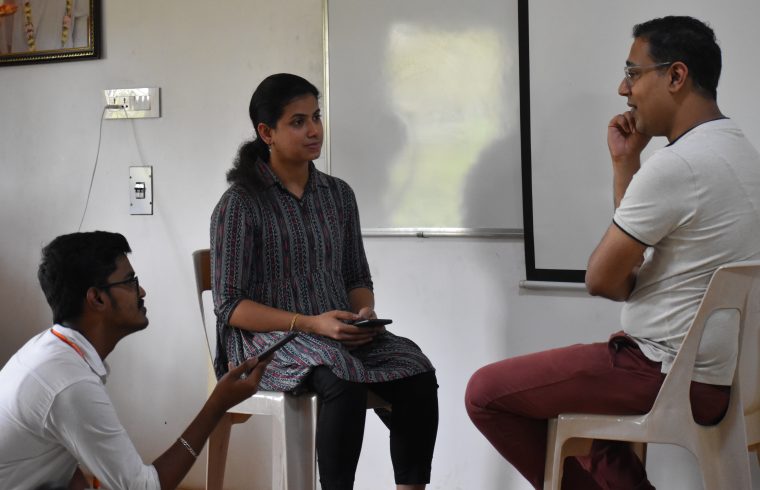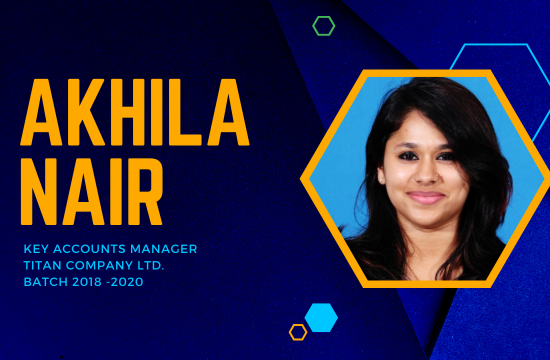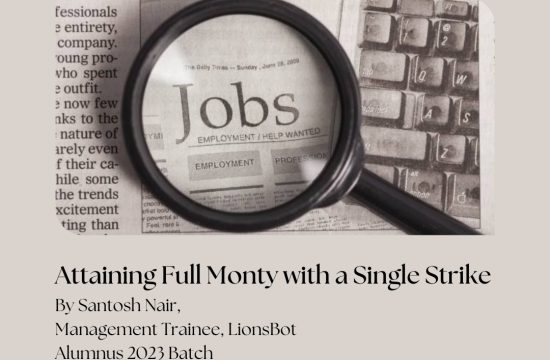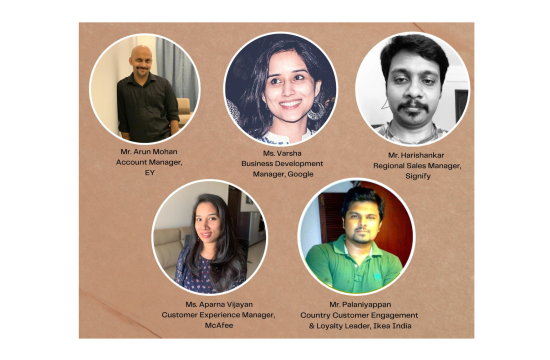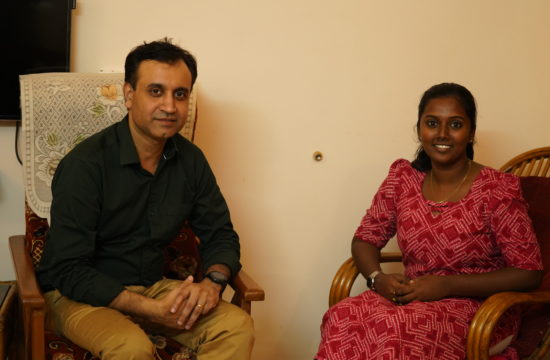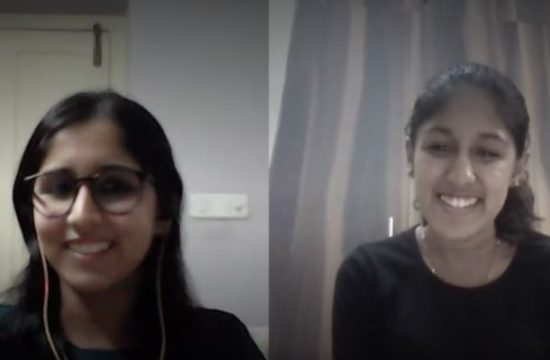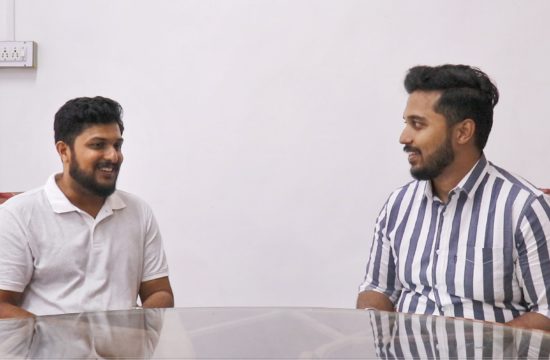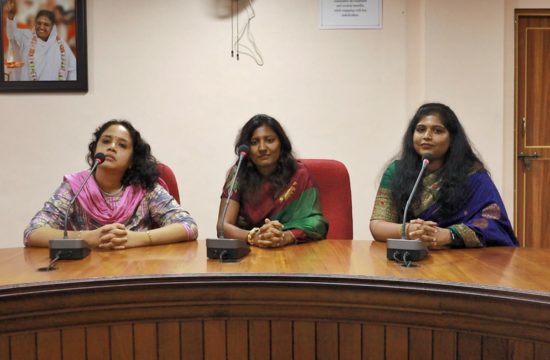Mr. Sankar Rajan is a Vice President at Bank of America Merrill Lynch. He has been in the financial industry for over 10 years, and he has held a variety of roles, including research analyst and trader. Rajan is an expert in foreign exchange and the Asia-Pacific markets. In this conversation, Rajan discusses his career path, his day-to-day responsibilities, and his advice for aspiring finance professionals. He also shares his insights on the challenges and rewards of working in finance.
How does it feel to be back at ASB after a long time?
I feel very nice. Actually, one of the best things I love about ASB is the campus. It’s extremely beautiful, with the western Ghats on the side and the mountains. In fact, though I had a car, I purposely took the train from Palakkad because I wanted to have the journey by the Walayar, the mountains are extremely beautiful and the quality of the weather is so good and I am extremely happy in that aspect. So it’s very nice to be back at campus.
What do you think is the important quality that is lacking by present-generation students?
I think one of the things that can be improved upon is focus. What happens is a lot of distractions and a busy schedule. During my education of two years, we didn’t have smartphones, instead we used to have the old feature phone, where the distraction was quite less compared to what we have right now. For example, recently I took an exam back in Singapore and I found it extremely difficult to study because of my phone. Actually, I am very sympathetic with the current students on how to manage that. All that I wanted to convey is that if you get your focus right, then everything will work well.
You began your career as a research analyst and now you are a VP. What do you think about this transition?
Initially, when I was in, it’s almost like 10-12 years early and it did not happen overnight so what I would say is that for first 6 years, it was extremely tough, I had to study a lot, gel with people, be in tough situations and because of being an ASB’ian, staying in an organization has helped me a lot. Once the difficult part was over then everything was a bit easy, it becomes easy because you know where it has come from.
What are some of the biggest challenges and rewards of your job? What do you expect as the challenge for the new position at BNY Mellon?
One of the best rewards that I had was personal, not monetary of what happened in 2019. One of my managers was in London. He asked me to do something that nobody else could do because there was a constraint. It was a kind of an IT task that they couldn’t complete and there was an audit requirement for a client to go live and if that was not done, the client couldn’t go liveand he asked me to do something about it. So, I just knew some bit of Python programming at that time. Because he gave me that, I developed an entire code in Python and could do the entire automation process in Python for about a week, that I made it liveand then my system was working as a server and it was reconciling all the trades for the bank essentially and what used to happen is every 2 hours automatic reconciliation used to happen and the request used to go up to everyone and I didn’t have to do anything, only my computer needs to be on and that’s it. So, I developed it on my own and eventually, it was appreciated and I gave the code to the IT. So, for me, that is always like a benchmark for me personally, because I didn’t myself think that I could do that. So, my personal thing changed after that. Hence, right now I can tell with confidence that even if I don’t lose up, I can still deliver. So, you need to have that confidence only because you are able to do an activity that you have not done before. So, I think that’s my personal achievement. I don’t know what will happen if I join but I know I will be able to handle it.
You are constantly aware of Current markets is it because you are required to or it was a part of your habit?
It’s like I have to do it because, I have to monitor the current risk that I had taken on the books, predict certain things to analyze the risk as the market keeps on changing. In every market situation, we have to predict the scenario and estimate the losses, So I do it because it is required for my job.
What advice would you give to someone who is interested in pursuing a career in finance?
So, one thing which I would advise is that when you study, study not in terms of clearing your exams, instead study for the understanding part of it. For example, if somebody asks you what IRR (Internal rate of return), you shouldn’t be telling formulas. Instead, you should tell in a fashion that a ten-year-old child would understand. That’s the level of understanding you should have. If you don’t study in that form then it’s very difficult to explain to someone what an IRR or CAGR is. So, the problem is that you by-heart those formulas and implement them. Instead of doing that, you have to do that for scoring marks take a step ahead and listen to YouTube videos or anything and you will exactly understand what IRR means in the real world.
What are your performance expectations as a fresher in this domain?
The first thing is they have to understand there will be mistakes that they will commit but they shouldn’t be too shy to talk to people about them. They should be a hard-working person, being able to see information from all sides, considering all sides they will be able to commit less number of mistakes.
Since you already had the clear cut mindset of what you’ll be pursuing were you aware of being a vice president of a big company?
No. Life isn’t linear. You’ll see that nothing is happening and all of a sudden everything happens and what he says is once we learn and work, it will pay you one day or the other. What currently is your big deal right now might not be a big deal 10 years down the line. You get there eventually if you happen to work.
How did you get into the Bank of America?
I had a lot of interviews. It was not easy for me, people with the right skills are limited and it is hard for the company to choose the right candidate. In BNY, they have been searching for this right candidate for more than a year which I am about to join. In general, it is not easy to get the right candidate.
How was your experience in business risk? What takes away you suggest for our students from your side?
So I would say that keep doing whatever you do, wherever you go. Try to be the best you can in the role. You should always strive to be the best in what you want to be. Then automatically opportunity would come to you. Because, striving to be the best makes your knowledge base increase. If everyone starts coming to you, asking questions, suddenly you feel so good about it and if you stay for that long, automatically opportunities would come.
Three positive attitudes that you see in today’s youngsters?
The first one is technological know-how. Many people in finance would say that why should I learn technology like programming, IT should only know these. But if you know technology, you can drive a lot of things. I didn’t learn programming first, but learned all during my work. Because learning can help us to teach others who is without knowing it. So, automatically you become better in that. Be open to learning new technologies. The second thing is to pay attention to retail, as it is extremely important. And the third one is to verify things before you send.
In the present day context younger generation will be more advanced in technology if that is so how are people of the older generation more vital in the company, is it because of experience if it is so how do you see this?
We actually compete on learning and the moment we stop learning, we will be out of the market. The biggest challenge is to continuously learn and unlearn, which is not an easy task. He says that he would be able to do the job of a tech guy at a lower pace, but the tech guy could be able to do his job because he lacks the business knowledge which comes from experience.
-Arunima S, Sam Selwyn J
Photo credits: Sreya Hariharan

